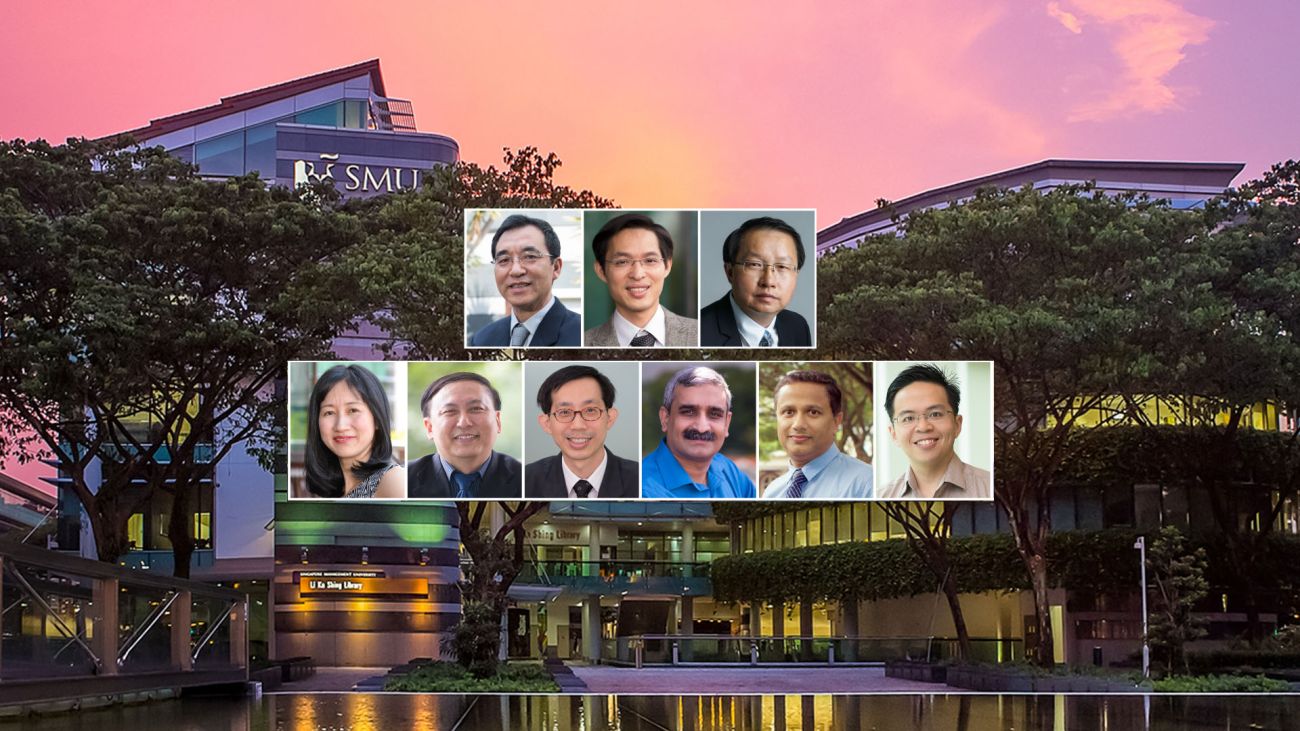
A global study by Stanford University has identified 17 SMU researchers as among the top scientists in the world.
Of these, 9 are from the School of Information Systems (SIS).
| Faculty | Field | Top % in field |
|---|---|---|
| Prof. Robert Deng | Artificial Intelligence & Image Processing | 1% |
| Prof. Steven Hoi | Artificial Intelligence & Image Processing | 1% |
| Prof. Tan Ah Hwee | Artificial Intelligence & Image Processing | 1% |
| Prof. Jiang Jing | Artificial Intelligence & Image Processing | 2% |
| Prof. Lau Hoong Chuin | Artificial Intelligence & Image Processing | 2% |
| Prof. Lim Ee Peng | Artificial Intelligence & Image Processing | 2% |
| Prof. Rajesh Krishna Balan | Networking & Telecommunications | 2% |
| Prof. Archan Misra | Networking & Telecommunications | 2% |
| Prof. David Lo | Software Engineering | 2% |
Professor Pang Hwee Hwa, Dean of School of Information Systems said, “I congratulate my colleagues for being placed among the top two percent of scientists in the world through their rigorous and impactful research. This serves as further recognition and affirmation of our efforts to foster disciplinary and cross-disciplinary research to achieve academic renown while impacting business, government and society. The recognition will serve as further impetus and inspiration to our professors to continue to scale the heights of excellence in research.”
In the Stanford study, Dr John P. A. Ioannidis of Stanford University and his research team used data from Scopus and created a database of 100,000 top-scientists that provides standardized information on citations, an individual’s scientific productivity and impact or h-index, co-authorship adjusted hm-index, citations to papers in different authorship positions and a composite indicator. The scientists are classified into 22 scientific fields and 176 sub-fields. Separate data are shown for career-long (until 2019) and single year impact.
About SIS Research
As the Computing school within Singapore Management University, our research is uniquely defined by the twin pillars of academic scholarship and practice scholarship. Our academic scholarship focuses on 3 computing technology clusters, namely,
- Artificial Intelligence and Data Science, comprising Data Management & Analytics, Intelligent Systems & Optimization, and Machine Learning & Intelligence.
- Human-Machine Collaborative Systems, comprising Pervasive Sensing & Systems, Multimedia, and Human-Computer Interaction.
- Information Systems and Technology, comprising Cybersecurity, Software Engineering & Systems, and Information Systems Management.
At the same time, we need to go beyond technology creation in order to achieve practical impact. We emphasise practice scholarship in solution development which entails integrating different technologies; integrating with business models and processes; addressing usability, deployment and product management concerns; aligning with local ethical norms as well as legal and regulatory frameworks; and, ultimately, fulfilling user and organisational needs. The application areas that we direct our practice scholarship to are Education Pedagogy, Urban Systems & Operations, Active Citizenry & Communities, and Safety & Security.